Learn more about our appointment options that are at your disposal.

Esophageal and Gastric Cancer Center of Excellence
About the Esophageal and Gastric Cancer Center of Excellence
At AHN’s Esophageal and Gastric Institute, we offer the most advanced, state-of-the-art therapy for esophageal cancer and gastric (stomach) cancer.
We provide the most up-to-date diagnostic and therapeutic care for all esophageal and gastric, or upper GI, diseases. This comprehensive, dedicated care allows patients to receive treatment at all stages with better outcomes. Our esophageal and gastric teams include:
- Foregut (esophageal and stomach) surgeons
- Medical oncologists: Learn more about our Medical Oncology Division.
- Radiation oncologists: Learn more about our Radiation Oncology Division.
- Pathologists
- Radiologists
- Nurse Navigators: Learn more about our Cancer Navigation Team.
- Dietitians and swallowing and voice specialists: Learn more about Voice, Swallowing and Nutrition Center Services.
- Mental health specialists
- Palliative care support services
- Clinical researchers
-
Appointments
Cancer Institute
The Esophageal and Gastric Institute is one of the few dedicated foregut centers in the United States. We provide patients with diagnoses, innovative treatments, and access to first-in-class clinical trials. Metastatic diseases are treated using state-of-the-art technologies including chemotherapy, targeted therapy, immune therapy, and clinical trials.
Our innovative techniques include:
- Advanced diagnostic approaches
- Therapeutic endoscopic procedures
- Minimally invasive surgical techniques
Foregut Division
The multidisciplinary team of the AHN Foregut Division is dedicated to helping you through problems with your esophagus and stomach. From the first appointment and throughout treatment, you receive individualized care to best address your unique needs. Our foregut team helps patients with:
- Esophageal cancer: Cancer in the esophagus is found in the esophageal that connects your mouth to your stomach.
- Gastric cancer: Stomach cancer is also called gastric or upper GI cancer.
- Gastroesophageal reflux disease: Often referred to GERD, this chronic digestive disease is caused by a weakness in the lower esophageal sphincter, a muscle between the esophagus and stomach.
- Hiatal or paraoesophageal hernia: This occurs when a large portion of your stomach is pushed through the hiatus (opening in the diaphragm) and into your chest cavity.
- Esophageal and gastric motility disorders: Motility disorders of the esophagus and stomach, such as achalasia and gastroparesis, can lead to GI symptoms.
- Esophageal diverticulum: An esophageal diverticulum is an out-pouching of the esophagus that may accumulate food and fluid resulting in regurgitation and/or aspiration.
- Voice, swallowing, and nutritional conditions: Learn more about Voice, Swallowing and Nutrition Center Services.
Transformative esophageal and gastric care
At AHN, our patients have access to the most up-to-date, comprehensive, and multidisciplinary care for esophageal and gastric cancers at all stages. Our team has extensive experience in the diagnosis, treatment, and aftercare of esophageal and gastric cancers. We offer a variety of services to support nutrition, mental health, and physical rehabilitation.
Our experts are highly trained in the management of all esophageal and gastric diseases at all stages. We treat all cancers and pre-cancerous changes of the esophagus including Barrett’s esophagus.
Precision diagnosis
For patients with esophageal and stomach cancer, precise staging and diagnosis is critical for the individualization of care. Our state-of-the-art evaluations include:
- Esophagogastroduodenoscopy (EGD/upper endoscopy) with biopsy: A procedure with a long flexible tube that allows a doctor to see the inside of the esophagus and stomach and obtain samples of tissue to obtain an accurate diagnosis. Learn more about EGD procedures.
- Endoscopic ultrasound (EUS): A special endoscopy that uses ultrasound to evaluate the esophagus and stomach to measure a tumor and associated lymph nodes.
- Barium swallow study: A radiology study using X-ray with swallowed contrast to evaluate the esophagus and stomach. Learn more about barium swallow studies.
- CT scan with PET: A radiology study to evaluate the location and potential spread of tumor throughout the body.
- Laparoscopic evaluations: Can be used to evaluate the extent of the disease and develop a proper treatment plan.
Treatment options
We provide dedicated individualized care for our patients. Our care is centered on the unique needs of each patient in order to provide the best experience and outcomes.
Chemotherapy
Chemotherapy uses specialized drugs to kill cancer cells. These drugs target rapidly dividing cells, which is a characteristic of cancer cells. However, they can also affect healthy cells that divide quickly, such as those in the bone marrow, hair follicles, and digestive tract, leading to side effects.
Chemotherapy, along with radiation therapy, can be given before surgery to shrink the tumor, after surgery to kill remaining cancer cells or as palliative care for those with advanced cancer cases. Combination chemotherapy is when two or more chemotherapy drugs are used together to increase their effectiveness.
Your AHN oncology team will provide you with medications and other strategies to manage the side effects of chemotherapy. Common side effects of chemotherapy include:
- Nausea and vomiting
- Fatigue
- Hair loss
- Mouth sores
- Diarrhea
- Increased risk of infection (due to low white blood cell count)
- Anemia (low red blood cell count)
- Peripheral neuropathy (numbness and tingling in the hands and feet)
Radiation therapy
The use of high energy (radiation) in a focused manner to treat cancer cells. It can be used by itself or in combination with chemotherapy. It can be delivered externally (from a machine outside the body) or internally (by placing radioactive material directly into or near the tumor).
Radiation therapy may be used before surgery to shrink the tumor, rarely used after surgery to kill remaining cancer cells or as palliative care for those with advanced cancer cases. It could also be used as the primary treatment for patients who are not able to undergo surgery due to medical reasons or if the cancer is too advanced to be surgically removed. It's usually combined with chemotherapy.
Radiation therapy also affects normal cells in the treatment area, which can lead to side effects including:
- Fatigue
- Skin irritation (redness, dryness, itching)
- Difficulty swallowing (esophagitis)
- Nausea and vomiting
- Loss of appetite
- Diarrhea
- Late side effects:
- Esophageal stricture (narrowing of the esophagus)
- Lung damage (pneumonitis, fibrosis)
- Heart damage (pericarditis, cardiomyopathy)
- Spinal cord damage (rare)
Your AHN oncologist and care team will monitor your progress and response to treatment. If adjustments need to be made, those will be considered.
Immunotherapy
Immunotherapy helps your own immune system recognize and attack cancer cells. It works by blocking certain proteins that prevent the immune system from attacking cancer cells.
Immunotherapy is typically used for advanced esophageal and gastric cancers that have spread to other parts of the body or that have recurred after initial treatment. It can be used post operatively to help reduce the risk of relapse. It may be used as a first-line treatment in combination with chemotherapy or as a second-line treatment after chemotherapy has stopped working.
The side effects of immunotherapy can sometimes be serious and require treatment with steroids or other medications. Your AHN oncology team will closely monitor you for side effects and provide appropriate treatment. Common side effects of immunotherapy include:
- Fatigue
- Skin rash
- Diarrhea
- Cough
- Shortness of breath
- Hormone problems (e.g., thyroid problems)
- Inflammation of various organs (e.g., lungs, liver, intestines)
Surgery
Our highly trained surgeons provide the most advanced minimally invasive endoscopic and surgical procedures to treat esophageal cancer. Treatment of esophageal and gastric cancer requires a team approach involving surgeons, oncologists, radiation oncologists, gastroenterologists, and other specialists. Nutritional support is also crucial before and after surgery to maintain strength and promote healing. Our surgical approaches include:
- Esophagectomy: An esophagectomy is the primary surgical procedure for esophageal cancer, which involves removing all or part of the esophagus.
- Gastrectomy: In a gastrectomy, the surgeon removes all (a total gastrectomy) or part (partial gastrectomy) of your stomach. The surgeon then reconnects your digestive system so you can continue to eat and digest food.
- A combination of both approaches may be used depending on the tumor location.
Expert treatments and therapies
AHN offers coordinated care that includes individualized chemotherapy, radiotherapy, immunotherapy as well as more unique therapies including:
- Brachytherapy
- Photodynamic therapy
- Esophageal stenting
- Endoscopic removal of tumors
- Minimally invasive surgery
Further care includes placement of feeding tubes to support nutrition and special catheters to help deliver treatments.
Patient Care Fund
The Esophageal and Gastric Institute recognizes that patients may need financial support along their treatment pathway. We are developing a fund to support all our patients. Please consider donation to assist patients with their care.
Esophageal and gastric cancer specialists
AHN’s team of esophageal and gastric cancer specialists include doctors who are nationally renowned experts in esophageal motility disorders, diseases and surgical treatments. Whether you are facing an esophageal cancer diagnosis or struggling with swallowing difficulties, our doctors will provide comprehensive and compassionate care that is specific to your needs.
Chairperson
Foregut Surgeons
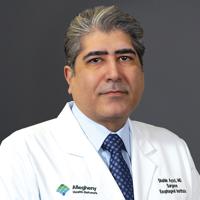
Surgeon
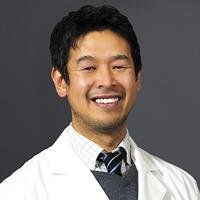
Surgeon
Stomach Cancer Surgeons
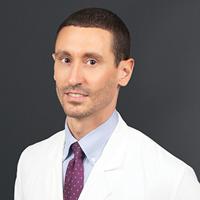
Surgeon

Surgeon
Specialty Leads
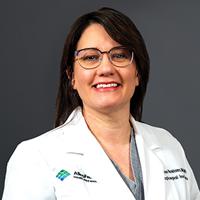
Surgical Lead
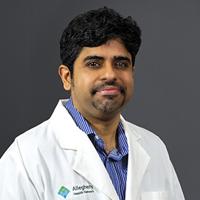
Radiology Lead
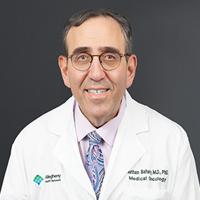
Medical Oncology Lead

Radiation Oncology Lead

Pathology Lead
How to get care
If you want to be tested for or have been diagnosed with esophageal or gastric cancer, we’re here to help.
For surgery or other appointments call:
- 412-359-4373 to schedule an appointment with one of our surgeons.
- (412) DOCTORS 412-362-8677 to schedule an appointment with one of our oncologists or to obtain an imaging study.
What to expect from your first appointment
At your first appointment, you will meet multiple members of our care team. Collectively, we will work to review your diagnosis and plan of care. If you have imaging or imaging from another hospital, please send in this information prior to your appointment or bring it with you. Through the course of your appointment, we will work together to understand who you are as a patient and how we can best develop a plan of care that fits your individual needs.
Leaders in esophageal and gastric cancer research
AHN researchers are continually investigating novel and effective ways to treat esophageal and upper GI cancers.
What is a clinical trial?
Clinical trials are studies that try to answer questions about new ways to treat cancer with medications, radiation, or surgical techniques. Previous trials have shown how new methods of treatment improve survival and quality of life and reduce the risk of cancer returning.
You participate in a clinical trial only if you volunteer to do so and meet criteria for inclusion in the study, and you can stop participating in a trial at any time.
Who can join a clinical trial?
Clinical trials often have criteria in place to help determine a patient’s eligibility to participate. The treatment team and the researchers can review these criteria to help determine eligibility for a clinical trial.
Currently active esophageal and upper GI cancer clinical trials
Find currently active trials if you would like to participate in cutting-edge investigations into the most advanced treatments for esophageal cancer.
Refer your patient to an AHN specialist
Medical professionals who work outside of the Allegheny Health Network, can refer their patients for care by calling:
- 412-359-4373 to schedule an appointment with one of our surgeons.
- (412) DOCTORS 412-362-8677 to schedule an appointment with one of our oncologists or to obtain an imaging study.
For more information about referring your patient to an AHN specialist, read the Independent Physician Referral FAQs.
After referring your patient
Once your patient is receiving care from an AHN specialist, you can view their test results, see their treatment plan, follow their treatment progress, and collaborate with our team using the EpicCare® Link™ platform.
If you are new to EpicCare Link, or need to request your own EpicCare Link account, read: EpicCare Link for Patient Follow-up, for user instructions and new account request forms.
When EpicCare Link is not an option for a patient's AHN medical records
If you can’t access your patient's AHN test results through the EpicCare Link platform, your patient will need to complete and submit the correct AHN Medical Records Release form, based on their state of residency. Support your patient’s request by downloading the correct medical records release form for them:
EpicCare® is a registered trademark of Epic Systems Corporation and used with permission.
EpicCare® Link™ is a trademark of Epic Systems Corporation and used with permission.

